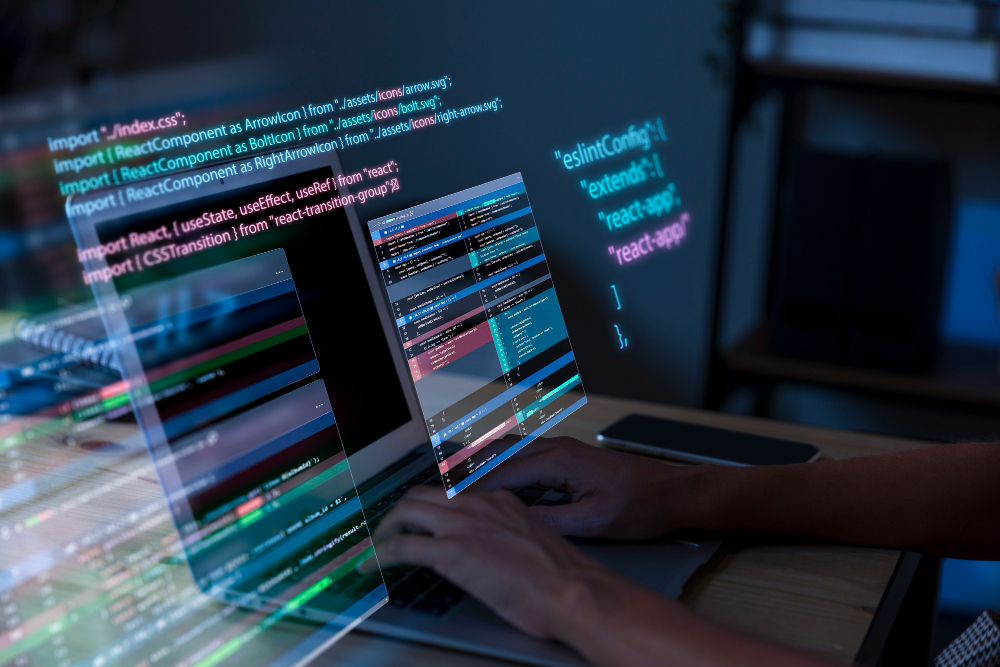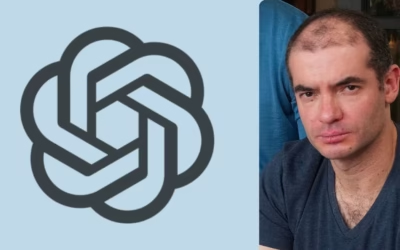For a few months in 2017, there were rumors that Sam Altman was planning to run for governor of California. Instead, he kept his job as one of the most influential investors and entrepreneurs in Silicon Valley.
But now, Altman is about to have a different kind of political debut.
Altman, CEO and co-founder of OpenAI—the artificial intelligence (AI) company behind the viral chatbot ChatGPT and the image generator DALL-E—will testify before Congress this Tuesday. His appearance is part of a Senate subcommittee hearing on the risks that artificial intelligence poses to society and the safeguards needed for this technology.
Lawmakers from both sides of the House of Representatives are also expected to host a dinner with Altman on Monday night, according to multiple reports. Dozens of lawmakers are said to be planning to attend, and one Republican legislator described it as part of the process for Congress to evaluate “the extraordinary potential and unprecedented threat that artificial intelligence represents to humanity.”
Earlier this month, Altman was one of several tech CEOs who met with Vice President Kamala Harris and, briefly, with President Joe Biden as part of the White House’s efforts to emphasize the importance of ethical and responsible development of artificial intelligence.
The hearing and meetings come at a time when ChatGPT has triggered a new arms race around artificial intelligence. An increasing number of tech companies have rolled out new AI tools in recent months, with the potential to change how we work, shop, and interact with each other. But these same tools have also drawn criticism from some of the biggest names in tech for their potential to disrupt millions of jobs, spread misinformation, and perpetuate bias.
As CEO of OpenAI, Altman—perhaps more than any other figure—has become the face of a new wave of AI-powered products capable of generating images and text in response to user prompts. This week’s appearance may cement his role as a key figure in the rapid growth of AI and increase scrutiny on him and his company.
Those who know Altman describe him as a brilliant thinker, someone who makes prescient bets, and he has even been called “a startup Yoda.” In interviews conducted this year, Altman has presented himself as someone aware of the risks posed by AI and even “a little scared” of the technology. He and his company have committed to moving forward responsibly.
“If anyone knows where this is going, it’s Sam,” wrote Airbnb CEO Brian Chesky in a post about Altman following the latter’s inclusion this year in TIME’s list of the 100 most influential people.
“But Sam also knows he doesn’t have all the answers. He often says, ‘What do you think? Maybe I’m wrong?’ Thank God someone with so much power has so much humility.”
Others want Altman and OpenAI to proceed more cautiously. Elon Musk, who helped found OpenAI before parting ways with the group, joined dozens of tech leaders, professors, and researchers in signing a letter calling on AI labs like OpenAI to pause the training of the most powerful AI systems for at least six months, citing “profound risks to society and humanity.”
Altman acknowledged agreeing with parts of the letter. “I think moving cautiously and with increasing rigor for safety issues is really important,” Altman said at an event last month. “I don’t think the letter was the optimal way to address it.”
OpenAI declined an interview for this story.
The Next Bill Gates:
The success of ChatGPT may have brought more public attention to Altman, but he has been a well-known figure in Silicon Valley for years.
Before co-founding OpenAI with Musk in 2015, Altman, originally from Missouri, studied computer science at Stanford University but dropped out to launch Loopt, an app that helped users share their locations with friends and receive coupons for nearby businesses.
In 2005, Loopt was part of the first batch of companies in Y Combinator, a prestigious tech accelerator. Paul Graham, co-founder of Y Combinator, later described Altman as “a very unusual guy.”
“Three minutes after meeting him, I remember thinking: ‘Ah, this must be what Bill Gates was like when he was 19,’” Graham wrote in a 2006 post.
Loopt was acquired in 2012 for around $43 million. Two years later, Altman succeeded Graham as president of Y Combinator. The role allowed Altman to connect with numerous powerful figures in the tech world. He remained at the helm of the accelerator until 2019.
Margaret O’Mara, a technology historian and professor at the University of Washington, told CNN that Altman “has long been admired as a thoughtful and meaningful person in the remarkably small number of powerful individuals who are at the top of tech and hold a lot of influence.”
During the Trump administration, Altman gained new attention as a vocal critic of the president. In that context, there were rumors he was considering a run for governor of California.
However, instead of running, Altman sought to support candidates aligned with his values, which include lower living costs, clean energy, and shifting 10% of the defense budget to fund research and development of future technology.
Altman continues to pursue some of these goals through his work in the private sector. He invested in Helion, a fusion research company that last week signed a deal with Microsoft to sell clean energy to the tech giant in 2028.
Altman has also advocated for the idea of universal basic income and has suggested that AI could one day help achieve that goal by generating so much wealth that it could be redistributed to the public.
As Graham told The New Yorker about Altman in 2016: “I think his goal is to make the entire future.”
An Overnight AI Sensation Years in the Making:
When launching OpenAI, the original mission of Musk and Altman was to get ahead of the fear that AI could harm people and society.
“We debated what’s the best thing we can do to ensure the future is good,” Musk told The New York Times about a conversation with Altman and others before launching the company. “We could sit on the sidelines, or we could encourage regulatory oversight, or we could participate with the right structure and with people who deeply care about developing AI in a way that is safe and beneficial to humanity.”
In an interview during OpenAI’s launch, Altman explained the company as his way of trying to guide the path of AI technology. “I sleep better knowing that I can now have some influence,” he said.
If there’s one thing both AI enthusiasts and critics can agree on right now, it’s that Altman has clearly managed to gain some influence over this rapidly evolving technology.
Less than six months after ChatGPT’s release, it has become a household name, almost synonymous with artificial intelligence itself. CEOs use it to write emails. Real estate agents use it to draft listings and legal documents. The tool has passed law and business school exams and has been used to help some students cheat. And OpenAI has just released a more powerful version of the technology behind ChatGPT.
Tech giants like Google and Facebook are now scrambling to catch up. Similar generative AI technology is quickly being integrated into productivity and search tools used by billions of people.
A future that once felt far off now seems just around the corner—whether society is ready for it or not. Altman himself has stated he’s not sure how it will all end.
O’Mara believes Altman fits into “the techno-optimist school of thought that has long dominated [Silicon Valley],” which she describes as “the idea that we can invent technology that makes the world a better place.”
Though Altman’s cautious remarks about AI may seem to run counter to that way of thinking, O’Mara argues it might be an “extension” of it. At its core, she says, it’s related to “the idea that technology is transformative and can be positive, but it also has so much capacity to do so many things that it could actually be dangerous.”
And if AI somehow helped bring about the end of society as we know it, Altman might be more prepared than most to adapt.
“I prep for survival,” he said in a 2016 New Yorker profile, pointing to various possible disaster scenarios, including “AI that attacks us.”
“I try not to think too much about it,” Altman said. “But I have guns, gold, potassium iodide, antibiotics, batteries, water, gas masks from the Israeli Defense Forces, and a big patch of land in Big Sur I can fly to.”
– Brian Fung of CNN contributed to this report.






0 Comments